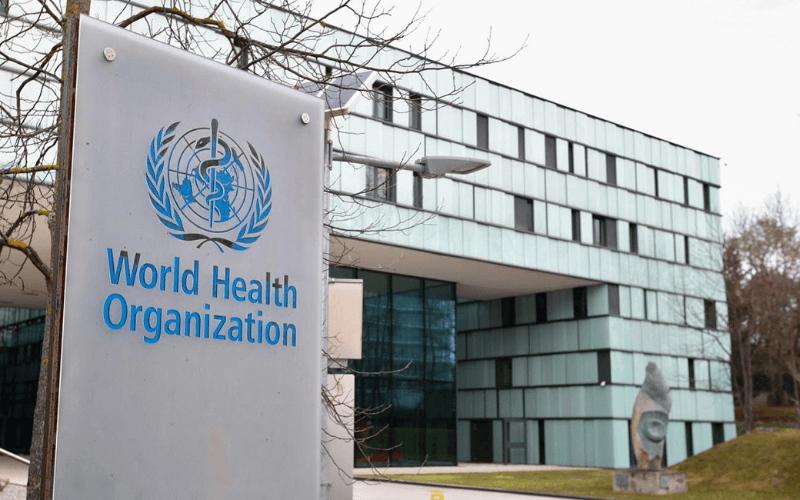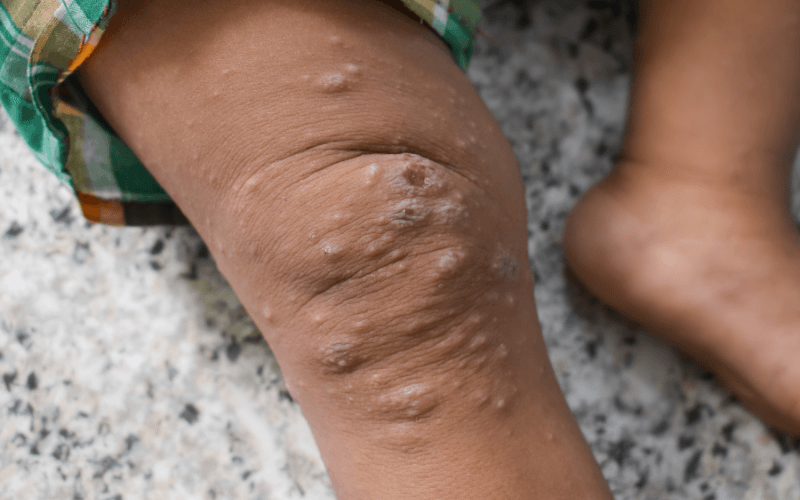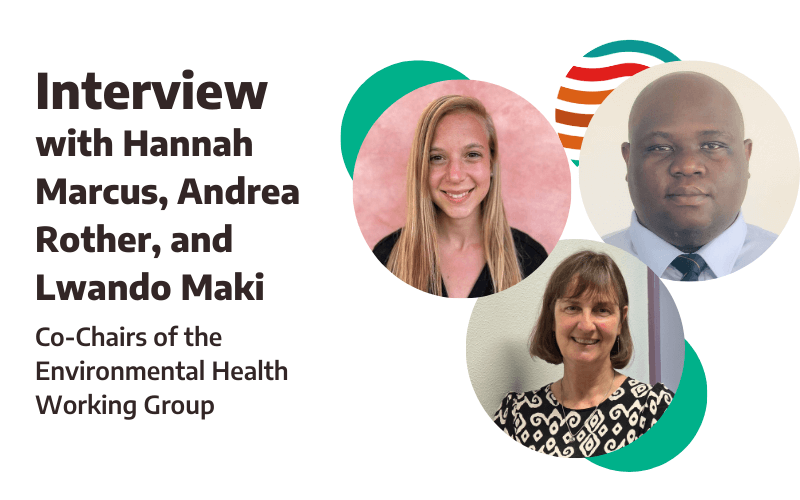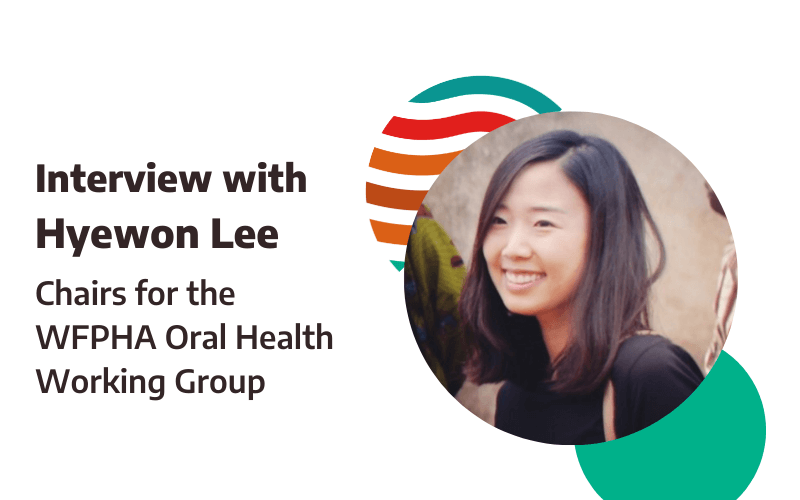We are excited to present an insightful discussion with the WFPHA Environmental Health Working Group co-chairs Hannah Marcus, Professor Andrea Rother, and Dr. Lwando Maki. These distinguished leaders bring a wealth of knowledge and experience in environmental health. Hannah Marcus is renowned for her environmental policy and public health advocacy work, while Andrea Rother is a prominent figure in chemical risk management and children’s environmental health. Lwando Maki brings a dynamic perspective with his sustainable development and community health expertise.
In this interview, they delve into the critical field of environmental health, exploring how our environment impacts health outcomes and discussing global strategies to address pressing environmental health challenges.
Please introduce yourselves
Hannah Marcus: I’m Hannah Marcus, the co-chair of the WFPHA Environmental Health Working Group. I started as an intern with the group in 2019, then became a member, a young co-chair, and now a co-chair alongside Lwando and Andrea. Previously, I worked alongside Liz Hannah, our former co-chair. I’m based in Nairobi, Kenya, working with an organization focused on research in the humanitarian and development sectors.
Lwando Maki: I’m Lwando Maki from South Africa. I’m a medical doctor and public health medicine specialist. I am completing my second specialty in internal medicine at the University of Cape Town. I co-chair the Environmental Health Working Group with Hannah and Andrea. I have held various leadership roles in national, regional, and global associations/organizations, including the World Medical Association and the Public Health Association of South Africa.
Andrea Rother: I’m Andrea Rother, a professor and head of the Environmental Health Division at the University of Cape Town’s (UCT) School of Public Health. My work focuses on chemicals, pesticides, children’s environmental health, and the nexus between climate change and chemicals. I also work on risk communication and the commercial determinants of health.
What motivated you to pursue a career in the public health sector?
Hannah Marcus: Initially, I was interested exclusively in the biomedical aspects of health, but upon engaging further with material from diverse disciplines such as anthropology, sociology, political science, environmental studies, and international development, I quickly realized how much more multifaceted health is, and this stimulated a deeper passion for the broader social determinants of health and environmental factors affecting health outcomes. My internship with the WFPHA in 2019, working at the intersection of climate change and health, solidified my interest in public health and its environmental aspects.
Lwando Maki: My motivation stems from a genuine desire to help others and the recognition of public health’s role in preventing diseases at the population level. Events in South Africa, such as extreme weather and its impact on health systems, propelled me to focus on climate change and public health. Growing up in a community that faced significant environmental challenges, I saw firsthand how environmental degradation and climate change disproportionately affect vulnerable populations. This inspired me to pursue a career where I could address these inequities. I focus on integrating local knowledge and grassroots involvement into environmental health initiatives, ensuring that solutions are inclusive and equitable. Representing African voices in global health forums is also a significant driving force for me.
Andrea Rother: My research journey began with a focus on women in agriculture and protecting traditional farming practices, which led to an interest in pesticides’ negative impacts and their regulation in Africa. My master’s research focused on the effectiveness of pesticide regulations in Zimbabwe in protecting human health. Subsequently, my PhD focused on the impact of risk perceptions and risk communication on South African (SA) farm workers’ health. In 1996 I joined the UCT Department of Community Health to implement a pesticide policy reform project in all nine SA provinces. Joining a public health department set me on the path of integrating environmental health concerns into teaching, research, outreach, and national/international policy work – i.e., chemicals, pesticides, climate change, commercial determinants of health, and children’s environmental health. This culminated in me setting up a Division of Environmental Health at UCT, developing three academic programs (two online for pesticide and chemical regulators), and representing UCT and WFPHA in international chemical negotiations (e.g., developing a science policy panel on chemicals and waste). I work tirelessly to support the African region in these negotiations to ensure that protecting vulnerable populations’ health is at the forefront.
How long have you been associated with The World Federation of Public Health Associations?
Hannah Marcus: I started with the WFPHA as an intern in 2019. During that time, I led a global survey on governance barriers to climate adaptation in the health sector, the results of which have been published in the International Journal of Health Governance. From there, I gradually took on more responsibilities, eventually becoming a young co-chair in 2021 and now a co-chair.
Lwando Maki: I’ve been involved with the Public Health Association of South Africa, a member of the WFPHA, since around 2014/2015. My leadership involvement at the WFPHA in 2022 led to my current leadership role.
Andrea Rother: In 2005, I became the South African National Focal Point Representative for the Human Health Effects of Chemicals Project of the World Federation of Public Health Association (WFPHA), representing the Public Health Association of South Africa (PHASA). I officially joined the WFPHA Environmental Health Working Group in 2018. Early on, I began reporting on international work and negotiations linked to chemicals and health. I then transitioned into the honored shared leadership role with Hannah and Lwando.
Please elaborate on your working group’s current activities and share your vision and plans for the future.
Hannah Marcus: Our focus areas include climate change, chemical regulation, air pollution, One Health, and Just Transition. We contribute to the WHO civil society working group on climate change and health, where we’ve been involved in co-drafting and leading advocacy in favor of a new climate change and health resolution adopted in May 2024 by the World Health Assembly. We are now also involved in a WHO-led task force to support preparing a climate health education-oriented work program for COP29 and COP30. We also host interns for small-scale research projects and policy reviews. Our objectives include expanding membership, updating policies, and fundraising. Our vision is to convene public health experts, collaborate on issues, and influence global policy.
Lwando Maki: We support and advise our member associations, ensuring they are informed and capable of implementing climate-related policies. Our activities are aligned with the WFPHA’s strategic plan, contributing to mainstreaming environmental considerations into public health policies. I’d like to add that environmental health is deeply tied to social justice. Marginalized communities often bear the brunt of environmental hazards. For instance, communities in many parts of Africa face severe water scarcity and pollution, exacerbating health issues and poverty. Addressing environmental health means addressing these inequalities and ensuring everyone can access a healthy environment.
Andrea Rother: We represent the issues of our working group in international negotiations (e.g., chemical, climate change, plastics) and keep our members informed of current activities and negotiations. This allows members to contribute their insights into these discussions during our regular meetings and to incorporate current negotiated outputs also shared during these meetings into their own research, teaching, and outreach work.
How do the working group’s activities align with and support implementing our association’s strategic plan?
Hannah Marcus: Environmental health is a key tenet of the WFPHA strategic plan. Our work ensures that environmental considerations are integrated into public health policies. Climate change is a central focus, and we contribute significantly.
Lwando Maki: The strategic plan is developed with input from working groups like ours. We collaborate with other working groups and ensure our actions align with the strategic plan through regular reporting and feedback.
How has being part of the WFPHA and its network enhanced the activities of your working group and expanded its reach?
Lwando Maki: The WFPHA’s reputation and leadership attract experts to our working group. It provides access to global forums like the World Health Assembly and COP meetings. Collaboration with other sectors and network access amplify our work and enhance our activities.
Andrea Rother: Representing WFPHA in international chemical negotiations gives credibility to our environmental health-focused interventions during these negotiations. It has also supported our efforts to make health issues more prominent in environment-dominated negotiations (i.e., the health sector is extremely underrepresented, and few health ministries attend).
How has WFPHA membership strengthened your group’s influence on international environmental health policies?
Andrea Rother: We’ve been active in sectors like chemicals, climate change, air pollution, and migrant health. Our involvement includes attending international meetings, signing letters, and drafting policy resolutions. For example, we helped draft a resolution on climate change and health adopted by the World Health Assembly.
Can you describe a collaborative project with the environmental advocacy community that had a significant impact?
Hannah Marcus: We collaborated with an institution in the Netherlands to develop a toolkit for public health professionals to support climate change litigation. Our member associations provided input through a survey, contributing to the toolkit’s development and dissemination.
How does the support from the WFPHA facilitate your group’s integration of public health approaches into environmental advocacy?
Hannah Marcus: The WFPHA provides a platform for integrating diverse public health perspectives into our work and bringing together diverse disciplinary experts in the field. Collaboration with other working groups ensures a comprehensive approach to environmental health issues.
Andrea Rother: The WFPHA offers access to global forums like the World Health Assembly, where environmental health issues can be highlighted and integrated into broader public health discussions.
Any last words?
Hannah Marcus: I want to reiterate the importance of collaboration and the collective effort to shape global policy on environmental health issues. The WFPHA’s support is crucial in bringing diverse voices and expertise together to achieve our goals.
Working Group Members:
– Hannah Marcus, Co-Chair, Consilient Research, Somaliland.
– Andrea Rother, Co-Chair, Division of Environmental Health, School of Public Health University of Cape Town, South Africa.
– Lwando Maki, Co-Chair, World Medical Association, South African Medical Association, Public Health Association of South Africa, World Health Assembly, South Africa.
– Liz Hanna, Chair (alumni), Australia National University, Australia.
– Peter Orris, Co-Chair (alumni), University of Illinois, World Medical Association, USA.
– Peter Tait, Member, Australia National University, Public Health Association of Australia, Australia.
– Chadia Wannous, Member, World Organisation for Animal Health, France.
– Ramon San Pascual, Member, Health Care without Harm, Philippines.
– Eliana Martinez Herrera, Grupo de Investigación Epidemiologia GEPI Universidad de Antioquia; Grupo de Investigación en Desigualdades en la Salud, Ecología y Condiciones de Empleo y Trabajo GREDS/EMCONET; Public Policy Center JHU-UPF. Asociación Colombiana de Salud Pública; Asociacion Colombiana de Epidemiología, Colombia.
– Joyce Shirinde, Member, University of Pretoria School of Health Systems and Public Health, South Africa.
– Shweta Narayan, Member, Health Care Without Harm.
– Jit Sohal, Member, Health Care Without Harm, Philippines.
– Guilherme Netto, Member, Fundação Oswaldo Cruz (Fiocruz), Brazil.
– Mirwais Amiri, Member, Eastern Mediterranean Public Health Network, Jordan.
– Sayed Himatt, Member, Eastern Mediterranean Public Health Network, Jordan.
– Mohannad Jaghabir, Member, Eastern Mediterranean Public Health Network, Jordan.
– Haitham Bashier, Member, Eastern Mediterranean Public Health Network, Sudan.
– Deema Al Bakri, Member, Eastern Mediterranean Public Health Network, Jordan.
– Lea Merone, Member, University of Queensland, Australia.
– Annalaura Carducci, Member, University of Pisa, Italy.
– Susan Elliott, Member, University of Waterloo, Canada.
– Tara Chen, Member, University of Waterloo, Canada.
– Katherine Catalano, Member, Deputy Director, Center for Climate, Health and Equity, American Public Health Association.
– Sari Kovats, Member, Associate Professor in the Department of Public Health, Environments and Society at the London School of Hygiene and Tropical Medicine, United Kingdom.
– Caradee Wright, Member, Chief Specialist Scientist: Environment and Health Research Unit, South Africa.
– David Patterson, Member, International Development Law Organization (IDLO), EUPHA-LAW, the Netherlands.
– Kris Ebi, Member, University of Washington Center for Health and the Global Environment, USA.








Recent Comments